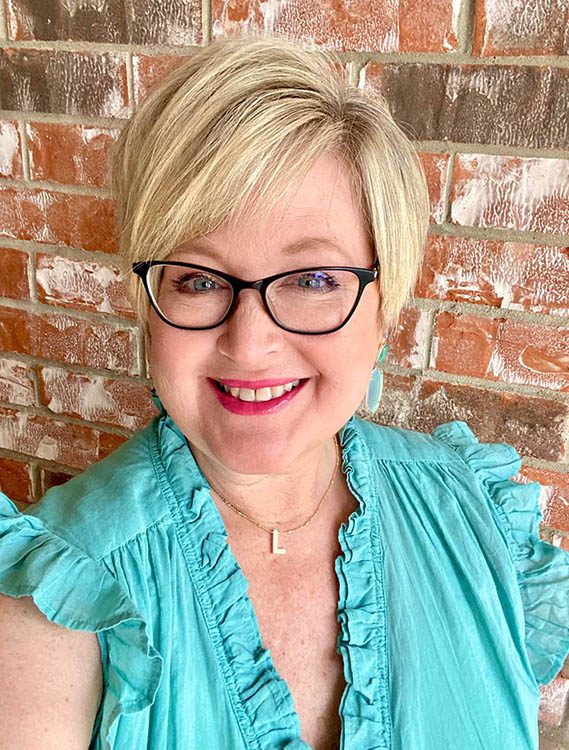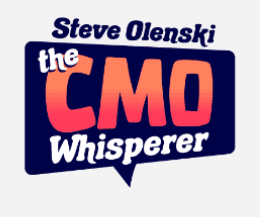How to Invest the Rotary Way
I’m not a financial advisor; Superpowers for Good should not be considered investment advice. Seek counsel before making investment decisions.
When you purchase an item, launch a campaign or create an investment account after clicking a link here, we may earn a fee. Engage to support our work.
If you haven’t had as many birthdays as I have, you may not be familiar with Rotary International. Let me fill in some gaps for you. Rotary is an international service organization with over 1 million members that is affiliated with local clubs in communities all around the world. The motto, “Service Above Self,” defines Rotarians’ ethos. Their signature service project is the eradication of polio, but that is truly a small part of the organization’s work.
The global organization focuses on executing local projects everywhere there are clubs and in many remote and underserved communities that don’t have clubs.
Officially, Rotary has seven areas of focus. In practice, these themes are interpreted broadly, and almost any work that serves a community can be supported by a club. The seven areas are (now I’m quoting from the official page):
Promoting peace: Rotary encourages conversations to foster understanding within and across cultures. We train adults and young leaders to prevent and mediate conflict and help refugees who have fled dangerous areas.
Fighting disease: We educate and equip communities to stop the spread of life-threatening diseases like polio, HIV/AIDS, and malaria. We improve and expand access to low-cost and free health care in developing areas.
Providing clean water, sanitation, and hygiene: We support local solutions to bring clean water, sanitation, and hygiene to more people every day. We don’t just build wells and walk away. We share our expertise with community leaders and educators to make sure our projects succeed long-term.
Saving mothers and children: Nearly 6 million children under the age of five die each year because of malnutrition, poor health care, and inadequate sanitation. We expand access to quality care, so mothers and their children can live and grow stronger.
Supporting Education: More than 775 million people over the age of 15 are illiterate. Our goal is to strengthen the capacity of communities to support basic education and literacy, reduce gender disparity in education, and increase adult literacy.
Growing local economies: We carry out service projects that enhance economic and community development and create opportunities for decent and productive work for young and old. We also strengthen local entrepreneurs and community leaders, particularly women, in impoverished communities.
Protecting the environment: Rotary members are tackling environmental issues the way they always do: coming up with projects, using their connections to change policy and planning for the future.
Rotarians are accustomed to readily donating funds to these causes and sharing their time and physical labor just as eagerly. However, few Rotarians have given any thought to Investing in fostering these outcomes. Let’s change that!
First, I always want to remind people that when we invest for impact—which is just another way of saying “invest the Rotary way”—you can match stock market returns and risk. You may recall that I delivered a SuperCrowdHour webinar on this theme. If you missed it, check it out so I don’t have to review it here.
Next, I want to point out that you can attempt to align your stock market portfolio with our Rotary values, but it is tough to have real impact that way. The reason is simple: when you buy shares, the Money you invest doesn’t go to the company you invest in; rather, the funds go to the seller—most likely an institutional investor like a hedge fund. Your purchase of the stock has virtually no impact on the company.
To have impact, you need to make direct investments in businesses. When you invest directly, even with small amounts, the money goes to the company to use for accomplishing a business objective. The easiest way to make direct investments in companies is via regulated investment Crowdfunding.
You may believe, based on Milton Friedman’s doctrine, that a business exists only to make a profit; no real good comes from investing in a business. Let’s explore some of the ways that old-fashioned framing doesn’t hold up. We’ll use Rotary’s seven areas of focus for this analysis. (By the way, you could also use the United Nations 17 Sustainable Development Goals and reach a similar conclusion.)
Promoting Peace. You can participate meaningfully in what peacebuilding experts call “positive peace” by how you invest. In our country—and around the world—there are ethnic, cultural and other divisions that sometimes lead to conflict. You can help prevent conflict by investing across those divisions. In the US, race is especially challenging. You can invest in small business owners who don’t look like you. That simple act builds a bridge between you and the business owner, reducing the potential for race-based friction. That is positive peace.
Fighting Disease. I love to invest in companies that have the potential to directly impact public health. Companies raising capital from the crowd are developing Cancer treatments, early cancer diagnostics, AI tools to improve rehabilitation, affordable prostheses for people in developing countries, and so much more. Your money can make a difference while it earns you a return.
Providing clean water, sanitation, and hygiene: Over the years, we have seen a number of companies raising capital for improved water filtration or for commercializing Technology that pulls water right out of the air—even in the desert. I’m an investor. You can be, too!
Saving mothers and children: This special subset of global public health has surprising relevance right here in the US, where our maternal health and child mortality numbers look pretty bleak compared to other rich countries. Backing the development of new vaccines is a potentially profitable way to support child health. Nothing has done more to reduce child mortality around the world than routine vaccinations.
Supporting education: There is an entire category of technology known as “EdTech” that refers to educational technology, most of which tends to improve education either by reducing costs or improving outcomes—or both. I’ve also invested in a small business that provides education for neurodivergent adults to help them upgrade their Employment opportunities. This is a high-impact area of focus.
Growing local economies: When I talk about regulated investment crowdfunding, the easiest impact to see is the effect on local economies. When a community rallies behind local businesses to invest and then shop there, you build the local Economy much more effectively. The data on local enterprises is overwhelmingly positive. Simply investing in businesses in your community aligns strongly with Rotary’s sixth area of focus.
Protecting the environment: Investing in climate solutions and other environmental efforts is profitable. I’ve invested in dozens of environmentally friendly businesses—some have already paid off! Climate solutions require massive investment and provide exciting financial return potential. Many are also community-based and have social impacts beyond the environment.
Furthermore, because minimum investments via regulated investment crowdfunding are customarily small—sometimes as low as $10—you can quickly build a diverse portfolio of investments across the seven areas so you don’t have undue concentration in a single business or sector. You can invest prudently and profitably by doing your research (due diligence).
I’m not a financial advisor, but if you’d like an introduction to one who knows how to invest locally for impact—that is, how to invest the Rotary way—let me know and I’ll hook you up.
If you know a member of a Rotary Club, share this article with them. If you’re not a Rotarian but you already invest in the Rotary Way, consider joining Rotary!
Support Our Sponsors
Our generous sponsors make our work possible, serving impact investors, social entrepreneurs, community builders and diverse founders. Today’s advertisers include FundingHope, American Independent Business Alliance (AMIBA), Mivium and Azolla. Learn more about advertising with us here.
Max-Impact Members
The following Max-Impact Members provide valuable financial support:
Carol Fineagan, Independent Consultant | Lory Moore, Lory Moore Law | Marcia Brinton, High Desert Gear | Paul Lovejoy, Stakeholder Enterprise | Ralf Mandt, Next Pitch | Add Your Name Here
Upcoming SuperCrowd Event Calendar
If a location is not noted, the events below are virtual.
Impact Cherub Club Meeting hosted by The Super Crowd, Inc., a public benefit corporation, on December 17, 2024, at 1:00 PM Eastern. Each month, the Club meets to review new offerings for investment consideration and to conduct due diligence on previously screened deals. To join the Impact Cherub Club, become an Impact Member of the SuperCrowd.
SuperCrowdHour, December 18, 2024, at 1:00 PM Eastern. Each month, we host a value-laden webinar for aspiring impact investors or social entrepreneurs. At December’s SuperCrowdHour, Jason Fishman of Digital Niche Agency will an “Algorithmic Strategy to Reach Your Crowdfund Capital Raising Goals.” Free to attend.
Community Event Calendar
Successful Funding with Karl Dakin, Tuesdays at 10:00 AM ET – Click on Events
Community Revitalization, Thursdays, 10:00 AM Eastern.
CfPA Webinar with President-Elect Jenny Kassan sharing her vision for 2025, December 11 at 2:00 PM Eastern.
NC3 Changing the Paradigm: Mobilizing Community Investment Funds, March 7, 2025
Asheville Neighborhood Economics, date TBD following impact of Helene.
If you would like to submit an event for us to share with the 8,000+ members of the SuperCrowd, click here.






























